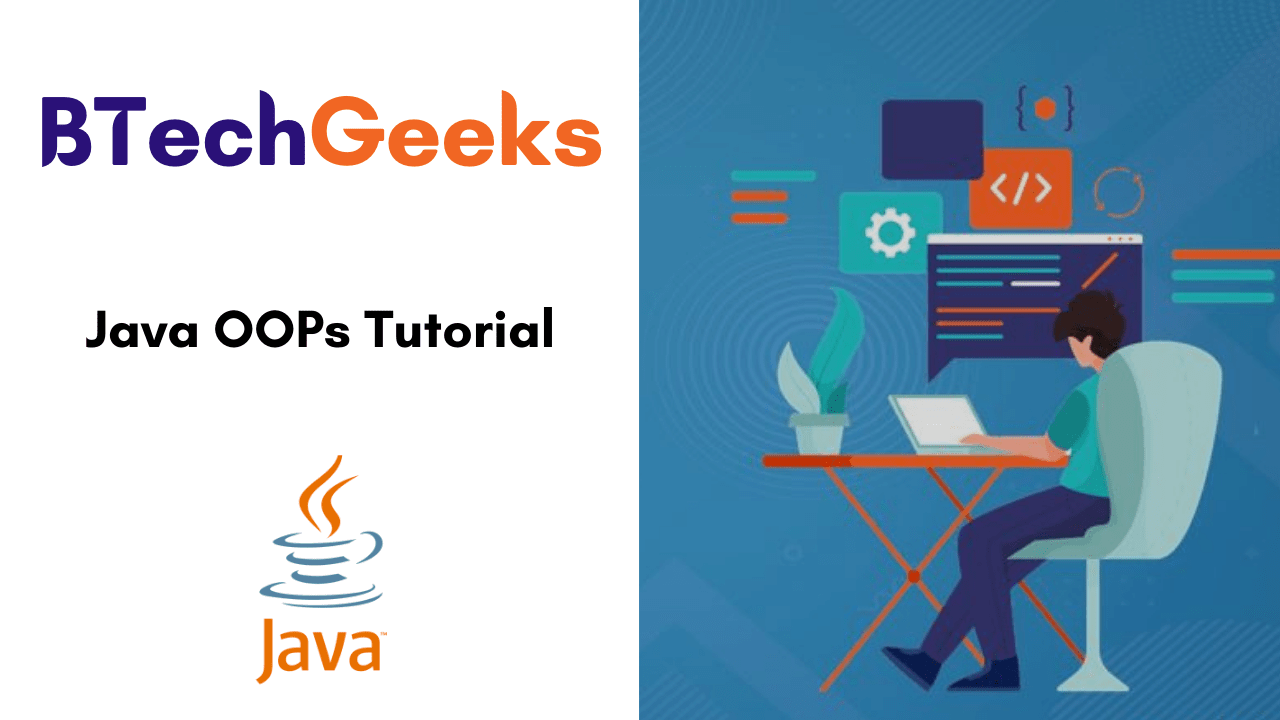Oops concept tutorial: Object-Oriented Programming is one of the main concepts in the programming environment, hence, every newbie as a Java developer or passionate coder should have a grip on it. This free BTech Geeks online Java OOPS Tutorial for Beginners helpful for understanding the concepts of Object-oriented programming such as class, objects, abstraction, encapsulation, inheritance, polymorphism, message passing, etc. From this tutorial, you may gain complete knowledge about OOPs Concepts that come under modern Java Programming Language.
- Full-Form of OOPS
- What is an Object-Oriented Programming Model?
- List of OOPs Concepts in Java with Examples
- Why Learn Java OOPS Concepts in Java?
- Advantages of OOPs (Object-Oriented Programming System)
- OOPs Concepts with Real-Time Examples
- Top 10 Java OOPs Interview Questions List
Full-Form of OOPS
OOPS concepts tutorials: OOPS stands for Object-Oriented Programming System. Basically, it is a programming language that operates on some principles like abstraction, encapsulation, inheritance, and polymorphism. Also, this OOP is a widely known concept in modern programming languages like Java. Java OOPS is totally based on the concept of ‘Class and Objects’ which include data and methods.
Do Refer Related Java Tutorials:
What is an Object-Oriented Programming Model?
The object-oriented programming model rotates around the concept of Objects.
Objects:
An object is an example of a Class. It includes properties and functions. They are like real-world objects. For instance, the objects can be your phones, cars, houses, etc. Objects hold some specific properties and methods to execute some activity.
Class:
The Class represents the blueprint of Objects. They describe the properties and functionalities of the objects. For example, Phone is a class and your phone is an instance of it.
List of OOPs Concepts in Java with Examples
The features of object-oriented programming systems in java are explained in detail here. Check out the links of all concepts of OOPs available here and learn efficiently & easily.
- Class and Object in Java with Example
- Abstract Class in Java
- Encapsulation in Java OOPs with Example
- Inheritance in Java with Example
- Polymorphism in Java
- How to call Base class’s overridden method from Derived class in java
Why Learn Java OOPS Concepts?
The main purpose of Java Object-oriented programming concepts is to increase the maintainability and flexibility of programs. Moreover, it fetches together the data and methods (behavior) in an object(single location) to make it simpler for understanding how the java OOPS program works.
Also, Object-oriented programming intends to perform real-world entities such as inheritance, hiding, polymorphism, etc in programming. For a better understanding of the OOPs concepts in Java, we have explained each and every feature of it in the above links.
Advantages of OOPs (Object-Oriented Programming System):
- Java OOPs Concepts are simpler and easy to grasp and they provide a clear modular structure for programs.
- It improves program modularity in view of the fact that every object exists individually.
- There is an advantage of using the created Objects for Object-Oriented Programs in other codings. Hence, it saves the time & cost of the development.
- Writing large programs is difficult, but by using the OOPS concepts, the development and designing team can design better with minor flaws.
- OOP benefits to retain the Java code DRY “Don’t Repeat Yourself”, and it makes the code simpler to manage, alter, and debug.
OOPs Concepts with Real-Time Examples
Let’s see the following example and learn all concepts of oops in java quickly at once:
class One {
public void display() {
System.out.println("One");
}
}
//inheritance
class Two extends One {
@Override
public void display() {
System.out.println("Two");
}
public int add(int x, int y) {
return x+y;
}
//Overload
public double add(double x,double y) {
return x+y;
}
}
//encapsulation example
class EncapTest {
private String name;
public String getName() {
return name;
}
public void setName(String newName) {
name = newName;
}
}
//abstraction
abstract class TwoWheeler {
public abstract void run();
}
class Honda extends TwoWheeler{
public void run(){
System.out.println("\nbike is Running..");
}
}
class MainClass {
public static void main(String[] args) {
One a=new One();
a.display();
Two b=new Two();
b.display();
System.out.println(b.add(4,2));
System.out.println(b.add(5.,2.)); //polymorphism
EncapTest encap = new EncapTest();
encap.setName("Sandeep's");
System.out.print("Name : " + encap.getName() );
TwoWheeler test = new Honda();
test.run();
}
}
Output:
One Two 6 7.0 Name : Sandeep's bike is Running.
Top 10 Java OOPs Interview Questions List
The list of top 10 Core Java OOPs Interview Questions are provided below for quick reference to all freshers & job searchers in Java Developer designations. Check the most commonly asked questions of OOPs in Java and prepare well for an interview.
- What is OOPs in Java?
- Why use OOPs?
- What is an object?
- What is a class?
- Can you call the base class method without creating an instance?
- What are the main features of OOPs?
- What is the difference between OOP and SOP?
- What is the difference between a class and a structure?
- What is the difference between a class and an object?
- What is inheritance?

